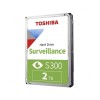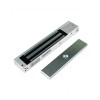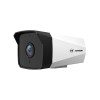Out of Stock
| Storage Features | |
| Capacity | 512GB |
| Interface | NVMe PCIe Gen3 M.2 2280 |
| Sequential (R/W) Speed | Up to 1,800 MB/s, 1,500 MB/s |
| Form Factor | 3D NAND flash |
| General Info | |
| Dimensions | 80 x 22 x 2.23 mm |
| Weight | 8 g (0.28 oz) |
| Warranty Information | |
| Manufacture Warranty | 05 Years |
PCIe M.2 SSD 110S
Transcend's PCIe SSD 110S utilizes the PCI Express Gen3 x4 interface supported by the latest NVMe standard, to unleash next-generation performance. The PCIe SSD 110S aims at high-end applications, such as digital audio/video production, gaming, and enterprise use, which require constant processing of heavy workloads with no system lags or slowdowns of any kind. Powered by 3D NAND flash memory, the PCIe SSD 110S gives you not only fast transfer speeds but unmatched reliability.
Compelling performance for high-end applications
Transcend's PCIe SSD 110S follows NVMe 1.3 and utilizes the PCIe Gen3 x4 interface, meaning four lanes are used for transmitting and receiving data simultaneously, resulting in the compelling performance of up to 1,700MB/s read and 1,400MB/s write.
Note: Performance is based on CrystalDiskMark v5.0.2.

Understanding the PCIe interface
PCIe (or PCI Express) is a much faster interface than SATA (or Serial ATA) for connecting a host computer to solid-state storage devices over one or more lanes consisting of one transmit and one receive serial interface in each lane, meaning it can better fulfill new performance requirements.

Understanding the NVMe standard
NVMe (or NVM Express) is a host controller interface standard designed to address the needs of enterprise and client applications that utilize PCI Express-based solid-state storage. NVMe calls for better performance vectors than AHCI (Advanced Host Controller Interface), including scalable bandwidth, increased IOPS, and low latency.

3D expansion to break through limits
Unlike the existing planar NAND chips, 3D NAND flash is a type of flash memory in which the memory cells are stacked vertically in multiple layers. 3D NAND is developed to break through density limitations of the 2D planar NAND, and thus can deliver a greater level of performance and endurance.

Better endurance, higher reliability
Transcend's PCIe SSD 110S has engineered with LDPC (Low-Density Parity Check) coding, a powerful ECC algorithm, to keep data secure. Manufactured with high-quality NAND flash chips, and an engineered dynamic thermal throttling mechanism, the PCIe SSD 110S guarantees superior endurance and stability for high-end applications.





